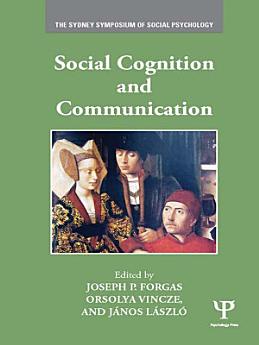Social Cognition and Communication
या ई-पुस्तकाविषयी
The chapters address such questions as how are cognitive and identity processes reflected in language? How do affective states influence language production? Are political correctness norms in language use effective? How do partners manage to accommodate to each other’s communicative expectations? What is the role of language as a medium of interpersonal and intergroup influence? How are individual and cultural identities reflected in, and shaped by narratives in literature, school texts and the media?
The book is aimed at all students, researchers and laypersons interested in the interplay between thinking and communication, and should be required reading for all professionals who use language in their everyday work to interact with people.
लेखकाविषयी
Joseph Paul Forgas, Scientia Professor at the Univeristy of New South Wales, Sydney, received his doctorate from the University of Oxford. His research investigates the role of affective processes in interpersonal behavior. He has published 24 books and over 200 articles and chapters. He received the Order of Australia, as well as the APS’s Distinguished Scientific Contribution Award, the Humboldt Research Prize and is Fellow of the Academy of Social Sciences in Australia, the American Psychological Society, the Society of Personality and Social Psychology and the Hungarian Academy of Sciences.
Orsolya Vincze was educated at the University of Pécs and received her doctorate there. Since 2004 she has been an associate professor at the Institute of Psychology at the University of Pécs. She received the award for Best Young Researcher Work in 2007 from the Committee of the Hungarian Computational Linguistic Conference for developing the narrative content analytical algorithm of narrative psychological perspective.
János László is scientific advisor and head of the Social Psychology Department at the Institute of Psychology of the Hungarian Academy of Sciences and a grauduate of Eötvös University, Budapest.He is also professor and chair of the Social Psychology Department at the University of Pécs. He was president of the National Doctoral Council in 2008-2010, where he is now honorary president. He is founding editor of the Journal of Cultural and Evolutionary Psychology. In 2011 he received the Award of the Hungarian Academy of Sciences.







